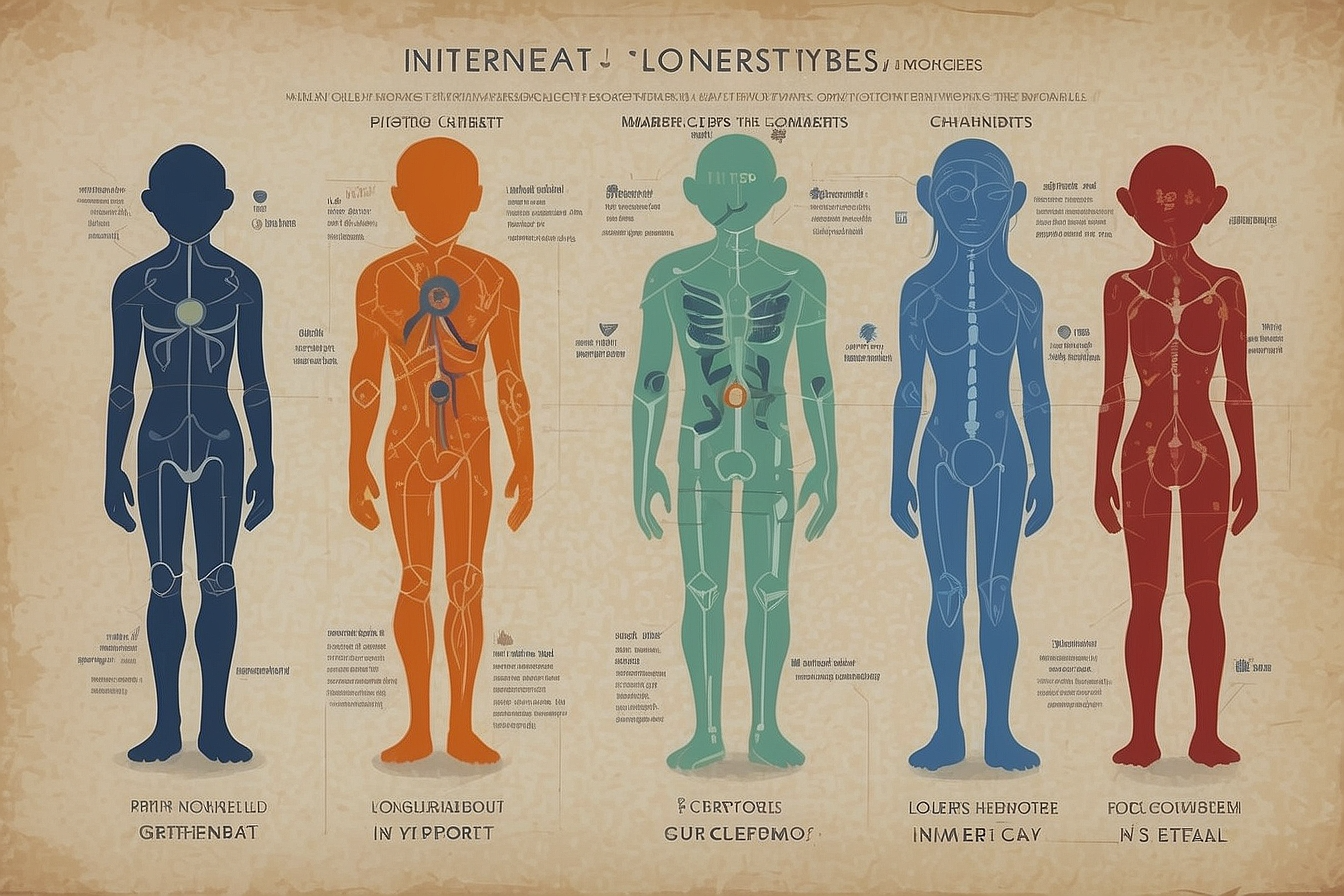
Have you ever found yourself in a room full of people yet felt utterly alone? Or perhaps you’ve cherished moments of solitude, finding peace in the quiet when you’re just with your thoughts. This isn’t a tale of two different worlds; rather, it’s the complex nature of being human. Our emotional well-being often hinges on understanding our needs for social interaction and alone time. This post isn’t just about the loners or those who enjoy solitude. It’s for anyone who’s ever felt lonely in a crowd, questioned their social skills, or wondered if preferring their own company is bad. Whether you identify as a loner or not, we’re delving into the nuanced tapestry of what it means to seek solitude in a world that constantly buzzes with social interactions. Let’s explore together the personality traits that define a loner, the emotional state that comes with it, and how, perhaps, finding comfort in being alone is not just okay but a sign of deep self-awareness and emotional health.
Understanding Loners

The Different Types of Loners
Exploring loner personalities makes it clear that not all loners are the same. Recent research identifies several major types unintentional loner themselves. First, some intentional positive loners prefer solitude for personal growth and creativity. They thrive in their own company, finding joy and emotional well-being. Then, there are intentional negative loners, often withdrawing due to negative outlooks on society or past social rejection. Unintentional loners find themselves alone due to life circumstances rather than choice. Short-term loners seek solitude for a temporary period to recharge or reflect. Understanding these types of loners helps grasp the complex nature of loner personalities.
Positive vs. Negative Loners
The line between positive and negative loners is defined by their reasons for and the effects of their solitude. Positive loners choose to be alone for self-love, personal growth, and enjoying their own business. They often have a level-headed approach to life and relationships, maintaining healthy boundaries with others. Negative or chronic loners who, however, may struggle with social isolation, chronic loneliness, or antisocial personality disorder. Their solitude might stem from negative habits, social awkwardness, or a dislike of people, impacting their mental health negatively.
Can Loners Feel Lonely Sometimes?
Even those who enjoy solitude and value their alone time can feel lonely. Loneliness is a complex emotional state that doesn’t discriminate based on one’s personality trait of liking solitude. Regardless of being highly independent and self-aware, Loners can experience moments of feelings of loneliness, especially when they sense a lack of deep, meaningful connections with others. It’s a reminder that human connection is vital to everyone’s well-being, even for those who prefer solitude.
In understanding loners, it’s essential to recognize the diverse reasons people might seek solitude and how they affect their lives. Whether through choice or circumstance, loners tend to reflect a broad spectrum of human personality types and emotional states, each with unique challenges and rewards.
Embracing Intentional Positivity as a Loner

Connecting with Your Thoughts and Emotions
For intentional positive loners, solitude is a golden opportunity to connect with their thoughts and emotions. This process involves tuning into your inner self, listening to your desires, and understanding your fears. It’s a time for self-reflection that leads to a better understanding of who you are and what you want from life. This connection fosters emotional well-being and can transform solitude from a state of being alone to a state of being at peace with oneself.
Practicing Self-Love
Practicing self-love is a crucial step for loners in nurturing their emotional state. It means accepting your personality traits, setting healthy boundaries with others, and caring for your physical and mental health. Self-love also involves celebrating your strengths and being gentle about your weaknesses. For loners, self-love can be practiced through activities enjoyed with family members or in solitude that contribute to personal growth and happiness, affirming the belief that being alone does not mean being lonely.
Embracing Alone-ness
Embracing alone-ness is about seeing the value in spending time by oneself and recognizing it as an opportunity for growth rather than a source of loneliness. It allows loners to pursue interests and hobbies without the influence or interruption of others, fostering a sense of independence and self-sufficiency. Intentional positive loners tend to find joy in their own company, developing a strong sense of self that is not easily shaken by the outside world. This embrace of solitude can lead to a fulfilling life where loners are not just content but thrive in their own schedule, making choices that align with their true selves.
Embracing intentional positivity as a loner involves self-awareness, self-love, and acceptance. It’s about consciously choosing to find joy and satisfaction in solitude, using it as a tool for personal development and emotional health. This positive approach to alone-ness challenges the conventional view of solitude as something to be avoided, highlighting its potential for leading a person to a rich, self-determined life instead.
Overcoming Loneliness as a Positive Loner

Finding Belonging in Your Tribe or Connecting with the Universe
Even as a positive loner who cherishes alone time, finding a sense of belonging can significantly enhance emotional well-being. This doesn’t always mean seeking out large social groups; it can be about finding your tribe—a small group of people with similar interests, values, or experiences. Loners can also find a deep connection with the world around them, feeling a part of the larger universe through nature, art, or spirituality. These connections reinforce the idea that one can be alone without feeling lonely, offering a sense of unity and belonging that transcends physical social interactions.
Seeking Out Pain Instead of Chasing Happiness
It might sound counterintuitive, but sometimes, seeking out challenging experiences or acknowledging pain can be more fulfilling than the endless pursuit of happiness. For loners, embracing difficult emotions or situations can lead to profound personal growth and a more authentic life satisfaction. This approach encourages facing fears, learning from failures, and growing stronger. It’s about understanding that life‘s value comes from the full spectrum of experiences, both good and bad, and that enduring hardship can lead to a more meaningful existence. Positive loners often find that this mindset helps mitigate chronic loneliness, emphasizing a focus on self-development and internal fulfillment rather than external validation or fleeting moments of joy.
Overcoming loneliness as a positive loner involves recognizing the value in connections with others and the personal growth that comes from facing life’s challenges head-on. It’s a balanced approach that allows for deep self-reflection and meaningful interactions with the world, leading to a rich, fulfilling life even when one walks the path less traveled.
Conclusion

It need not be a lonely or isolating journey to comprehend and embrace the life of a a loner personality. Through recognizing the different types of loners and the complex nature of solitude, we see that being alone can be a source of strength, emotional well-being, and personal growth. Whether one is an intentional positive loner finding peace in solitude, or someone learning to overcome the challenges of feeling lonely, the key lies in embracing and understanding one’s needs and desires.
Positive loners remind us that solitude can be enriching, allowing for deep connections with our thoughts and emotions, fostering self-love, and encouraging a fulfilling life lived on our terms. Yet, they also show us the importance of seeking connections that enrich our lives, be it with a close-knit tribe of friends or the universe at large. By facing life’s challenges and embracing the full spectrum of our experiences, loners can lead lives that are not only self-sufficient but also deeply connected to the broader tapestry of human experience.
Ultimately, whether you identify as a loner or cherish moments of solitude, the journey is about finding balance—between solitude and society, introspection and connection, and facing life’s pains and pleasures. It’s about crafting a life that feels true to who you are, surrounded by people who understand and appreciate your nature, and finding joy in both the quiet moments alone and the shared experiences with others.







Leave a Reply